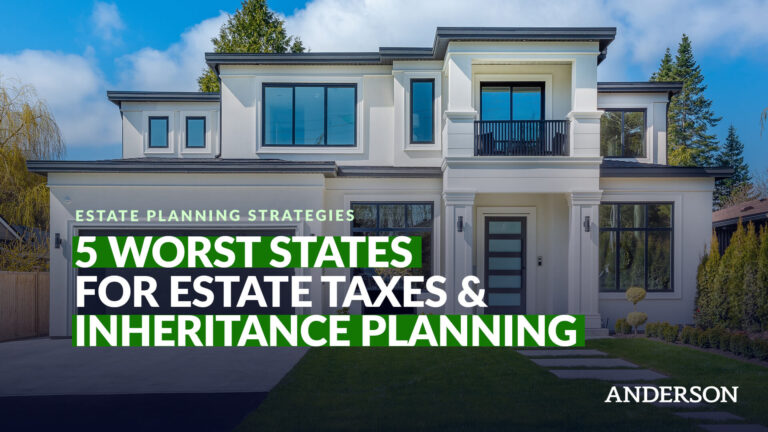
When most people hear the words estate planning or legacy plan, they think about wills, probate court, and taxes. But here’s the truth: creating a legacy that lasts generations isn’t complicated—or reserved for the ultra-wealthy.
The foundation is actually pretty simple. You start with a revocable living trust (not just a will), then use LLCs for holding real estate like your rentals or primary residence. You set clear rules for how the money is used—lawyers call this HEMS (health, education, maintenance, and support). Then you fund the trust with your assets and life insurance.
From there, you can incorporate the values that matter most to you—whether that’s education, charitable giving, or even making sure your kids and grandkids travel and experience other cultures. You appoint the right successor trustees, include protections that keep the family out of probate court, and, if it fits, even set up a family foundation.
Your goal is simple: protect your assets, minimize taxes, and keep your estate plan private, efficient, and meaningful—so your family enjoys financial security and peace of mind long after you’re gone.
Want to see me break this down step by step? Watch the full video here before diving into the details below.
Why Does Legacy Planning Feel So Complicated & How Do I Start?
Most people hear “legacy” and immediately think about their passing. That’s why they delay. But estate planning isn’t only about the final chapter—it’s about protecting your assets and creating a plan that gives you and your family members peace of mind while you’re alive.
A strong trust and estate plan protects your personal assets, properly titles your primary residence, and keeps your real estate portfolio generating rental income from property held in trust without interruption.
Here’s how to start today:
- Don’t put it off. Estate planning also covers incapacity. If you’re hospitalized, who can make medical and financial decisions? Without clear documents, the probate court decides.
- Write down your values. Education, travel, giving, entrepreneurship—these should guide how your trust is drafted.
- Choose the right vehicles. For most real estate investors and landlords, that means a revocable living trust, LLCs for holding real estate, and possibly a foundation for charitable giving.
I’m Not “Rich.” Is a Real Legacy Even Possible Without Millions?
Absolutely. Legacy planning isn’t reserved for the ultra-wealthy. Whether you own one rental or fifty, estate planning for landlords ensures your portfolio transitions smoothly, avoids the probate process, and keeps producing income for future generations.
You can even fund your type of trust with affordable term life insurance. That way, your children or grandchildren aren’t inheriting just taxable estate assets—they’re inheriting a plan with funding, purpose, and structure.
Request a free consultation with an Anderson Advisor
At Anderson Business Advisors, we’ve helped thousands of real estate investors avoid costly mistakes and navigate the complexities of asset protection, estate planning, and tax planning. In a free 45-minute consultation, our experts will provide personalized guidance to help you protect your assets, minimize risks, and maximize your financial benefits. ($750 Value)
What’s the Core Structure of a Legacy Plan for Real Estate Investors and Landlords?
Here’s how I typically design a legacy plan that doubles as estate planning for real estate investors:
- Revocable Living Trust. Keeps you out of probate court and defines exactly how assets are used.
- LLCs for rentals. Each property is held in its own LLC for asset protection, and then the trust owns those membership interests.
- HEMS (Health, Education, Maintenance, Support) distribution standard. Defines how funds can be used. This prevents waste and preserves cash flow.
- Successor trustee(s). Appointed to manage everything privately, without court intervention.
- Tax awareness. A properly drafted plan allows a married couple to minimize taxes by leveraging exemptions and structuring ownership.
This structure means your heirs inherit income-producing assets instead of a pile of liabilities.
Why a Living Trust Instead of Just a Will?
A will is simply an invitation to probate court. That’s where judges, creditors, and sometimes family disputes drain time, money, and energy. A living trust helps you avoid the probate process, protect your privacy, and manage your properties seamlessly.
For real estate investors, tenants keep paying rent, managers keep running operations, and trustees distribute funds to family without probate delays.
How Do I Align My Rentals & Cash Flow With the Trust?
Think: assets in entities, entities in the trust.
- Put each rental in an LLC for asset protection.
- Assign the LLC membership to your living trust.
- Let rental income flow into the LLC’s bank account, then upward under trust rules.
This structure insulates your personal assets, maintains legal separation, and keeps rental income flowing even if you become incapacitated.
What Does a Values-Based Trust Actually Say?
Your trust and estate plan can reflect your values:
- Education: Fund college tuition, vocational training, or licensing programs.
- Entrepreneurship: Provide seed money for business ventures.
- Service: Require charitable giving or community service as a condition of distributions.
- Family Security: Use standards that ensure no descendant lives in poverty.
Adding values-based instructions to your type of trust makes it far more than a financial tool—it becomes your family’s roadmap.
How Do I Avoid the “Inheritance That Hurts” Problem?
Without planning, lump-sum inheritances often disappear quickly. Worse, they can demotivate young beneficiaries. To avoid that:
- Stagger distributions by age or milestone.
- Use HEMS provisions so the money is applied to constructive needs.
- Allow trustees to suspend distributions during substance abuse or financial trouble.
This ensures your legacy helps, rather than harms.
What About Charitable Legacy—Should I Use a Family Foundation?
If giving is a value, you can create a foundation as part of your estate planning for property and investments. The trust funds the foundation, your family manages it, and it directs annual gifts to the causes you select. It creates family unity while also reducing your taxable estate.
How Do I Design a Plan to Prevent Ugly Disputes?
Disputes usually arise in probate court. The way to avoid that is simple:
- Use a living trust instead of a will.
- Add a no-contest clause so challengers risk disinheritance.
- Keep disputes private with mandatory mediation.
- Clearly spell out successor trustees and distribution standards.
That way, your plan protects your family and keeps control out of strangers’ hands.
What Specific Documents Should Every Landlord Include?
A solid trust and estate plan for real estate should include:
- Revocable Living Trust (with a pour-over will).
- Durable Power of Attorney (financial).
- Healthcare Power of Attorney & Advance Directive.
- LLC Operating Agreements coordinated with the trust.
Other essentials: assignments of LLC interests, trustee succession charts, and insurance policies aligned to the trust. These documents fully protect both your primary residence and your investment properties.
How Much Does This Cost & What’s the Return?
For most families, a complete estate plan with trusts, LLCs, and funding costs only a few thousand dollars. Compare that to the cost of the probate process, where legal fees alone often exceed that.
The return is measured in:
- Reduced taxes (especially for a married couple looking to minimize estate taxes).
- Asset protection (keeping lawsuits away from your personal assets).
- Privacy and continuity (avoiding the probate court circus).
- Peace of mind knowing your legacy will actually last.
Can You Give Me a Sample Roadmap to Implement This in 30–60 Days?
Here’s how to implement:
- Weeks 1–2: Define your values, gather documents, and choose trustees.
- Weeks 3–4: Draft a trust, update LLCs, and prepare powers of attorney.
- Weeks 5–6: Retitle assets, fund the trust, and establish a foundation if desired.
The result? A comprehensive trust and estate plan that avoids probate, reduces taxes, and protects your assets for generations.
How Does Rental Income Work When a Property Is Held in a Trust?
The trust becomes the owner of your LLCs, and the LLCs keep holding the real estate. Rental income flows into the LLC’s account, then the trustee applies it based on your instructions.
This structure keeps the rental income from property held in trust protected, avoids probate, and ensures your heirs inherit a functioning business rather than a mess of court filings.
How Does Legacy Planning Help With Real Estate Tax Planning?
A legacy plan isn’t just about avoiding probate—it’s also a powerful tool for tax planning. By structuring your portfolio through LLCs and a revocable living trust, you can:
- Preserve depreciation deductions while you’re alive.
- Ensure a step-up in basis at death, which can drastically reduce capital gains when heirs sell.
- Allow a married couple to minimize taxes by using both state and federal estate tax exemptions.
- Coordinate income from rentals so distributions are tax-smart, not haphazard.
Even everyday details—like how you title your bank accounts or how state law treats your primary residence—determine whether your estate becomes taxable or stays protected. A strong trust and estate plan connects the dots so your heirs inherit wealth, not tax headaches.
What’s the One Mistake That Kills Legacy Plans?
Inaction. Waiting until “later” is the biggest enemy. Start now with a living trust, align your LLCs, and document your wishes. You can refine over time, but the key is to act while you can.
How Do I Get Started on My Own Legacy Plan?
Legacy planning goes beyond paperwork—it protects your assets, keeps rental income from property held in trust flowing without interruption, and gives your family peace of mind when you’re gone. By creating the right type of trust, aligning your LLCs and bank accounts, and following the rules of your state law, you can avoid probate, reduce your taxable estate, and build wealth that truly lasts for generations.
Ready to protect your legacy?
Schedule your free 45-minute Strategy Session with a Senior Advisor today. We’ll review your assets, entity structures, and state law requirements, then design a custom plan to protect your real estate, minimize taxes, and give your family lasting peace of mind.
















